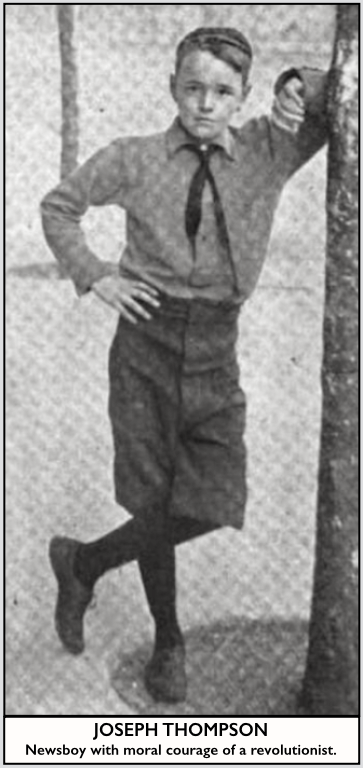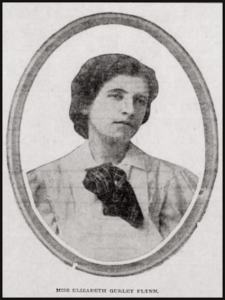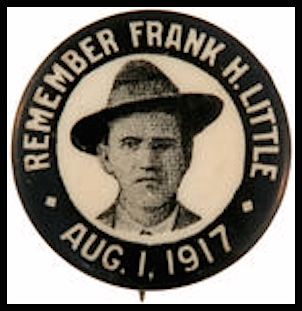 —————
—————
Hellraisers Journal – Saturday February 7, 1903
Father Thomas Hagerty on Socialism, Scientific and Idealistic
From the International Socialist Review of February 1903:
Socialism Versus Fads.
[-by Father Thomas Hagerty]
———-[Part II of II]
I remember, a little over a year ago, with what amazement I listened to a lecturer on Socialism who, with evident relish, quoted this sentence from Dr. Paul Carus: “The essential feature of existence, of that which presents itself to the senses, is not the material, but the formal; not that which makes it concrete and particular, but that which constitutes its nature and applies generally; not that which happens to be here, so that it is this, but that which makes it to be thus; not its Thisness but its Suchness.”* The discourse itself was vaguely soothing, like James Jeffrey Roche’s Concord love-song:
“Ah, the Ifness sadd’ning,
The Whichness madd’ning,
And the But ungladd’ning
That lie behind!When the signless token
Of love is broken
In the speech unspoken
Of mind to mind!”But imagine the flood of pure white light which such a discourse poured into the brains of the non-Socialists of that audience! At the worst, however, it was Socialism only in the Pickwickian sense and did not roughly antagonize any one’s private beliefs. The lecturer was deeply interested in things occult and could not resist the opportunity, which an audience gathered to hear of Socialism gave him, to expound his favorite doctrines concerning the Nirvana.
On the other hand one frequently meets with the man who prefaces his explanation of Socialism by insisting, like Büchner in matters of science, that the mind must first be emptied of all ideas of God and the supernatural before it is in a proper condition to receive the philosophy of Karl Marx. He wanders far afield to attack this church or that dogma and leaves his hearer under the impression that Socialism is essentially atheistic. He blames all the misery and ignorance in the world upon religion and seems never to have learned that a materialist conception of history puts beyond doubt the fact that the social organism is, in a very large measure, conditioned by its interaction with industrial environment, and that a comparative study of religions shows the influence of economic factors in much of their development. Such a man does positive harm to the cause of Socialism; and he is just as unreasonable and as unscientific as the preacher who insists on basing the science of economics upon his own particular creed.
There is, furthermore, the utterly inconsistent fad of “Christian Socialism,” whose upholders put forth the dogma of the Fatherhood of God as the ground-work of economic science and then proceed to build upon it a superstructure as much out of plumb as the leaning tower of Pisa. They contend that Labor and Capital must recognize their mutual rights,—that, in other words, the lamb must lie down in the lion’s belly and rely upon its coat of wool to protect itself from the searching acid of the gastric juices thereof. They would have men led into the highways of industrial righteousness by the allurement of Gospel texts, unmindful of the fact that nineteen centuries of such blandishment have failed to soften the granite heart of the ruling classes. The New Testament was never designed to serve as a treatise on Socialism any more than it was intended to teach the first principles of Biology. With profound reverence for its beautiful pages, I find it vastly inferior to Huxley and Martin’s “Practical Biology” and Karl Marx’s “Das Kapital,” for the same reason that I find Homer’s “Iliad” inferior to Remsen’s “Chemistry,” for when I want to study either of these sciences I can discover no knowledge of the protoplasm in St. Matthew and no guides to quantative analysis in Homer. This fact, however, does not hinder me from giving full value to the letters of St. Paul nor from appreciating the rhythm and swing of the lines that carry that ancient swashbuckler Achilles.
But when the crazy charge of infidelity is urged against us and a bishop forces a Father McGrady to resign because of his advocacy of Socialism, we may rightly say with Thoreau: “Really, there is no infidelity, nowadays, so great as that which prays, and keeps the Sabbath, and rebuilds the churches.” Surely, it is a flagrant infidelity which denies all Truth which does not bear the approval of a bishop’s imprimatur. It is a subtle atheism which admits the existence of God and then in His Name refuses economic salvation to millions of His creatures; which prays to Heaven and builds churches for worship and then tacitly sanctions the Capitalism which burns the marrow out of orphans’ bones.

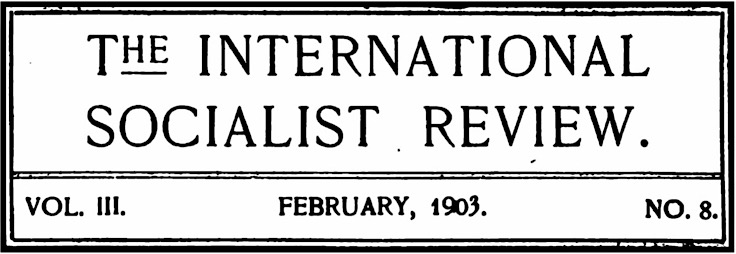
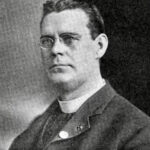
 —————
—————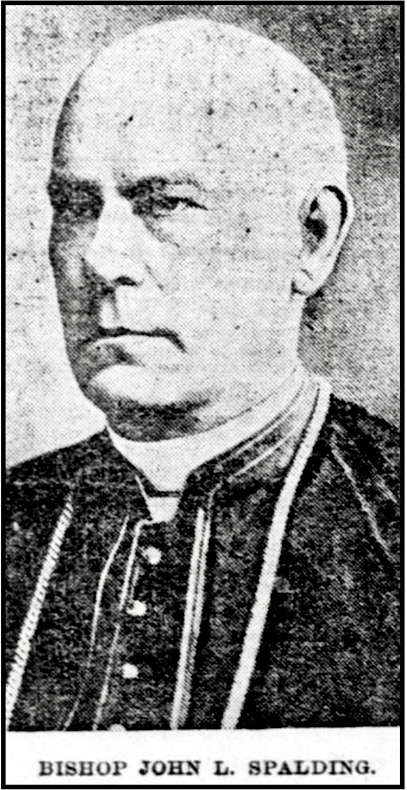
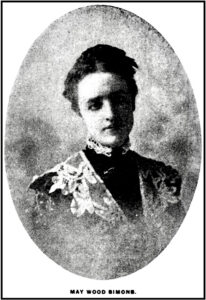
 —————
—————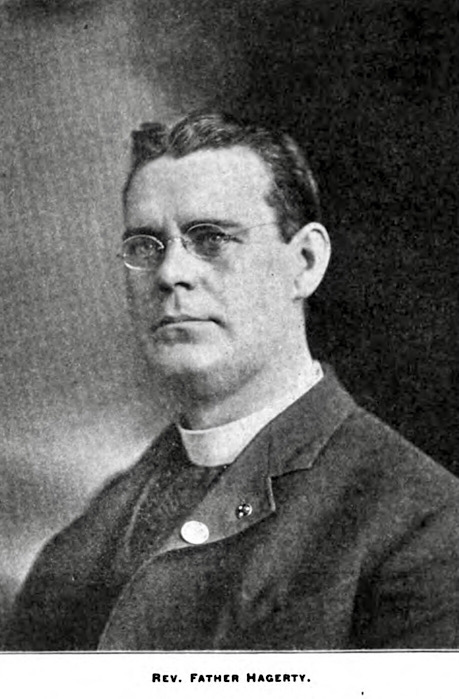
 —————-
—————-
 ———-
———-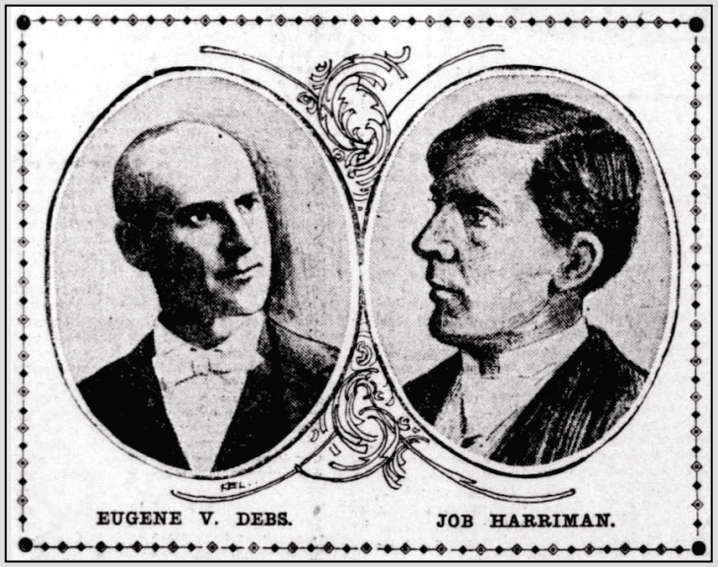 —–
—–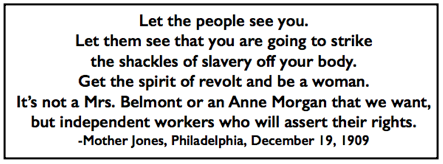 ———-
———-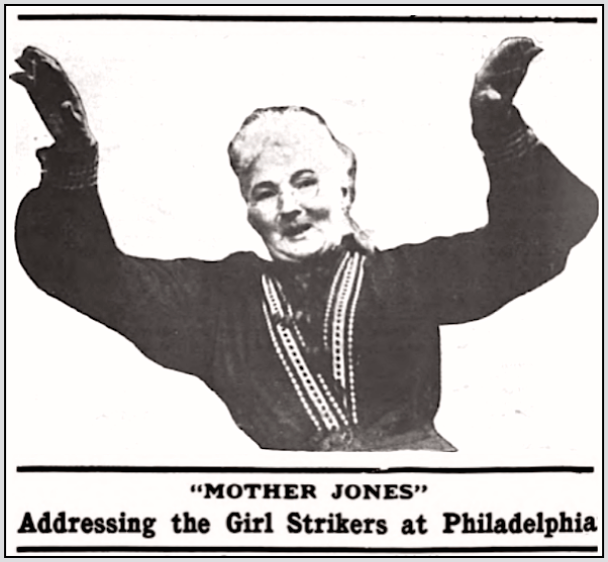
 ———-
———-